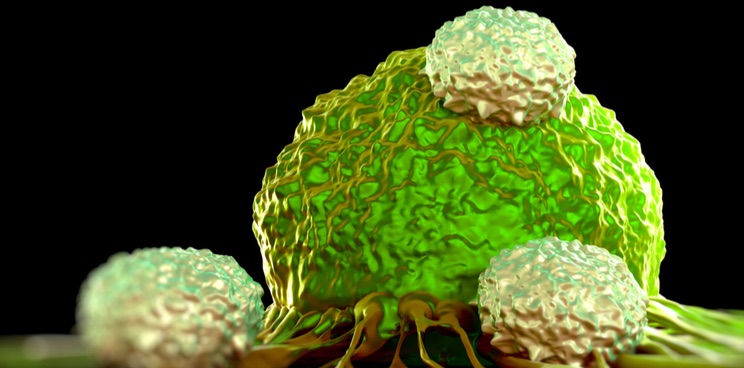Newsletter Signup - Under Article / In Page
"*" indicates required fields
The German biotech Immatics will partner with GSK and could receive more than €1B from the big pharma for developing cancer immunotherapies based on engineered immune T-cells.
Immatics will collaborate with GSK to develop two T-cell therapies that express a protein engineered to detect cancer antigens and kill cancer cells. In return, Immatics will receive €46M upfront and €509M in undisclosed developmental and commercial milestone payments per program, plus royalties.
These therapies will be similar to currently approved CAR T-cell therapies such as Yescarta and Kymriah, where the patient’s T-cells are modified to kill cancer cells. However, while CAR T-cell therapies are limited to rare forms of blood cancer, Immatics’ T-cells are designed to target solid tumors. This is because their modified protein — a T-cell receptor, or TCR — can detect cancer antigens hidden inside cells.
The partners will first focus on developing TCR therapies based on modifying the patient’s T-cells, but have the option to develop donor cell TCR therapies. For each extra program it opts into, GSK will pay an undisclosed amount in access and milestone payments.
Immatics will be responsible for developing the therapies up to the point of selecting a candidate for clinical development, which could take anywhere between 36 and 42 months, according to Harpreet Singh, CEO of Immatics. GSK will then take over the rest of the development, with the option of including Immatics in the process.
“We believe that we will be able to add TCR T-cell therapies to the immunotherapeutic arsenal to treat solid cancers in cancer patients, similar to what has been achieved for CAR-T in hematological cancers,” said Singh. “However, solid cancers are harder ‘nuts’ to crack.”
This is not the first time a big pharma company has snapped up TCR therapies. For example, the Japanese giant Astellas launched a collaboration worth over €200M with the Austrian biotech Adaptimmune last month to co-develop TCR and CAR T-cell therapies.
According to Singh, Immatics’ technology stands out from other TCR therapy companies because its TCR proteins are more specific to the cancer target. Furthermore, its cells take six days to produce, whereas approved CAR T-cell therapies can take more than double the time.
Singh believes that the future of TCR therapies will lie in attacking solid tumors at multiple targets, which could solve the issue of solid tumors becoming resistant to current therapies and recurring. “This is what we envision to be the cancer immunotherapy of the 21st century,” he said.
Images from Shutterstock






